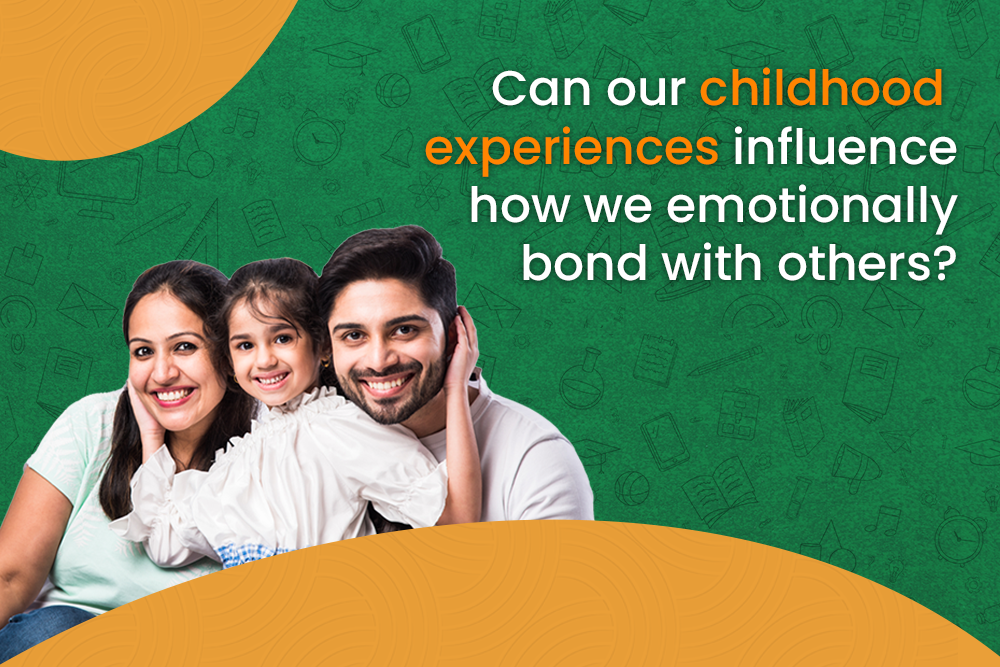South City International School

 26 Jun 2023
26 Jun 2023 Can our childhood affect our adult life?
According to the attachment theory, our early relationships with our parents can shape our emotional, social and cognitive development.
Attachment theory is a psychological framework that explains how early childhood experiences with caregivers shape the development of an individual's ability to form and maintain close relationships throughout their lives.
It has been widely researched and is considered a valuable tool in understanding human behaviour and relationships.
The Attachment Theory Explained
The attachment theory was developed by British psychoanalyst John Bowlby in the 1950s and expanded upon by American psychologist Mary Ainsworth in the 1970s.
At the core of attachment theory is that children are biologically wired to seek out and maintain closeness to their caregivers, especially when they feel threatened or distressed. This innate need for attachment serves as a survival mechanism, as infants who are able to form strong attachments with their caregivers are more likely to survive and thrive.
The quality of a child's attachment to their parent is determined by the parent's ability to respond to the child's needs in a consistent, sensitive and nurturing manner. When a parent consistently responds to a child's needs, the child develops a secure attachment style. Children with secure attachments feel safe and confident in exploring their environment and can better regulate their emotions and form positive relationships with others.
What is an attachment style?
Attachment style refers to a certain pattern of behaviour in and around relationships. There are four attachment styles observed in adults: secure attachment, anxious attachment, avoidant attachment, and fearful-avoidant (disorganised) attachment.
According to attachment theory, a child's attachment style is shaped in response to their connections with their first caregivers. Our adult attachment style mirrors our dynamics with our caregivers as infants and children.
Attachment style includes how we tend to respond emotionally to others, how we usually interact with partners in relationships, and how we behave when it comes to relationships in general.
How does an attachment style affect our development?
A child's attachment style in infancy and early childhood can significantly impact their social, emotional and cognitive development. Research suggests that children with secure attachments are more likely to have positive relationships, perform better academically, and have better mental health outcomes later in life. Conversely, children with insecure attachments are more likely to experience a range of negative outcomes, including behavioural problems, depression, anxiety, and lower academic achievement.
One of the key ways in which attachment experiences in childhood can affect adult life is through the development of internal working models. These models are mental representations of the self, others, and relationships that are formed based on early attachment experiences. These mental models can shape how we perceive and respond to social situations throughout our lives and influence our romantic relationships, friendships, and even our relationships with coworkers and acquaintances.
For example, adults with secure attachment styles tend to have positive working models of themselves as worthy of love and respect and of others as trustworthy and reliable. They can better form and maintain healthy relationships and are more likely to seek out social support when faced with stress or adversity.
In contrast, adults with insecure attachment styles may have negative working models of themselves as unworthy or unlovable and of others as unreliable or untrustworthy. They may struggle with forming and maintaining healthy relationships and may be more likely to experience anxiety and depression.
In conclusion, attachment theory provides a powerful framework for understanding how early childhood experiences can influence our development socially, emotionally, and cognitively. By recognising the importance of early attachment experiences and working to promote secure attachments between children and caregivers, we can help foster positive outcomes and promote healthy development for all children.
References:
 375, Prince Anwar Shah Road, Kolkata,
375, Prince Anwar Shah Road, Kolkata,  admissions@scis.co.in
admissions@scis.co.in
 info@scis.co.in
info@scis.co.in